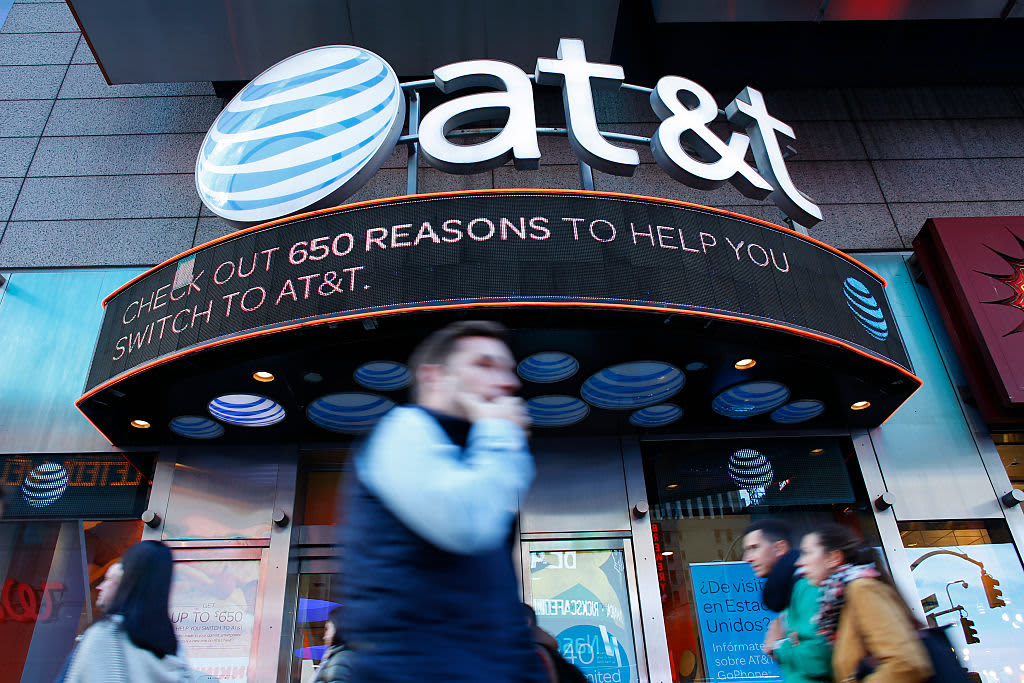
People walk past an AT&T store in New York.
Kena Betancur | AFP |Getty Images
AT&T has entered into a deal with private equity firm TPG to spin off its DirecTV, AT&T TV and U-Verse business, according to an SEC filing on Thursday.
Under the agreement, AT&T and TPG will form a new entity called DirecTV that will own and operate the company’s DirecTV, AT&T TV and U-verse video services. Bill Morrow, CEO of AT&T’s U.S. video unit, was named as the new company’s CEO.
The transaction implies an enterprise value for the new company of $16.25 billion, according to the company. AT&T acquired DirecTV for $48.5 billion ($67 billion with debt) in 2015 and hoped to pair the national pay-TV company with its wireless service to offer a discounted bundle to customers. Digital distribution of video has supplanted satellite in recent years, causing DirecTV’s value to plummet and AT&T to reposition its strategy around HBO Max, its flagship streaming video service.
“We certainly didn’t expect this outcome when we closed the DirecTV acquisition in 2015,” AT&T CEO John Stankey said on a conference call Thursday, while noting the deal is in the best interest of AT&T shareholders.
Following the close of the transaction, AT&T will own 70% of the common equity and TPG will own 30%. The new company will be jointly governed by a board with two representatives from each of AT&T and TPG, as well as Morrow, the company said. AT&T will no longer consolidate the new video business on its balance sheet.
The two companies were expected to announce a deal as soon as this week, CNBC reported on Tuesday. AT&T’s stock was up more than 1% in after-hours trading.
Focusing AT&T
Hedge fund Elliott Management took an activist stake in AT&T in September 2019. In a letter to management, Elliott asked AT&T to focus its strategic operations while considering divesting noncore assets — including DirecTV.
DirecTV, U-Verse and AT&T TV Now are based around a linear TV business of broadcast and cable networks that is losing millions of subscribers each year. AT&T made the decision to focus on its connectivity and streaming assets, the company said in a statement.
TPG isn’t buying a stake in DirecTV Latin America or the regional sports networks that AT&T acquired in its 2015 DirecTV deal.
Stankey didn’t rule out another transaction for the video businesses after the TPG deal closes. DirecTV and rival satellite TV provider Dish Network have long flirted with merging — including attempting a deal in 2002 that was blocked by regulators.
Both DirecTV and Dish are losing millions of satellite TV customers each year as consumers switch to streaming options. It’s possible regulators could accept a future merger if the satellite TV continues to decline and other video options gain popularity.
“We will be diligent about exploring second options,” Stankey said. “If something else occurs, we get 70% of the value.”






















